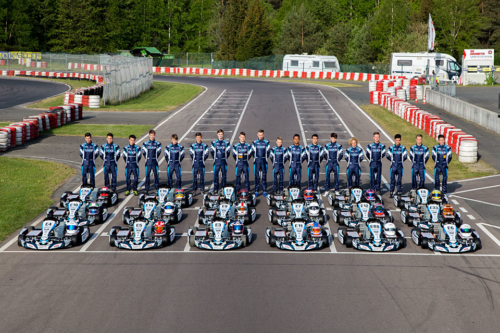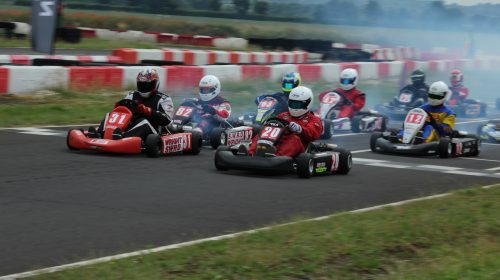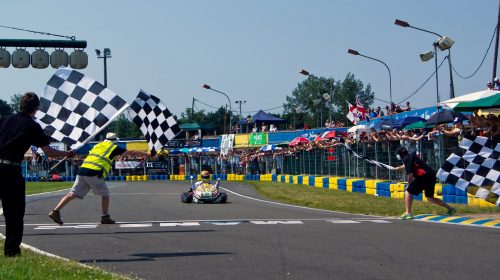Is this the future of karting?
If a large portion of the motorsport world is to be believed, the future of the sport will be electric. The advent of Formula E showed that an all electric race series was possible, at least for single seaters. But what about our sport of karting? What will happen when the world runs out of dinosaur fuel? Will the sport survive?
 BRP-Rotax tried to come up with the answer in late 2017 when it launched its electric powerpack, called The Rotax THUNDeR. Cool name right? The idea was a standardised battery pack and drive train that could be transplanted onto a DD2 spec chassis. The headline facts were that the motor produced 20kW, roughly equivalent to a Senior Max motor, but the torque figure was 46nM. Over double that of the 125cc 2-stroke unit. That meant 0-100km in 3.5s. About as fast as a KZ kart.
BRP-Rotax tried to come up with the answer in late 2017 when it launched its electric powerpack, called The Rotax THUNDeR. Cool name right? The idea was a standardised battery pack and drive train that could be transplanted onto a DD2 spec chassis. The headline facts were that the motor produced 20kW, roughly equivalent to a Senior Max motor, but the torque figure was 46nM. Over double that of the 125cc 2-stroke unit. That meant 0-100km in 3.5s. About as fast as a KZ kart.
After that, the publicity went a bit cold, but the project didn’t end there. The DKM (German karting championship) added the class to its roster of championships, with the class attracting 18 drivers over the course of the season. The series used the spec power train on a Sodi Sigma DD2 frame, with controlled tyres and testing to avoid high costs.
The series hit the track for the first time at Wackersdorf in May, and produced some great racing, just minus the standard 2 stroke buzz expected from a top level kart race. The series then visited Ampfang, Oschersleben, Kerpen before the final at Genk. The series was won by Philipp Britz who had a 33 point advantage over Dennis Siemens. Once the series had finished, there was still one major event left to go. The Rotax Max Challenge Grand Finals in Brazil. This would be the first time the series had been shown on a world stage.
16 karts and drivers, along with the whole infrastructure that had been developed for the series made the 9,500km joureny around the world to compete with some of the best drivers in the world. The Fastest DEKM driver in qualifying managed a 55.135s time, which was around 3 seconds down on the senior max and DD2 boys that the kart is based around. That being said, these were some of the best drivers in the world, as appose to a group of amature drivers, some of whom have only been racing for a year! It would be interesting to see what one of the pros could manage.
One issue would be the costs and infrastructure needed to run a championship of this style. Almost all of the circuits in the UK don’t have power hook ups in the paddock, and charging your kart between sessions would need quite a bit of power. Needless to say there would also be vast amount of heat produced form the batteries, which would need dissipating while the kart is off track. The way the DEKM gets around this problem, is by running all of the karts themselves. Drivers pay to race and are provided with everything needed to race. All of which is housed under one awning.
On the whole, the electric karting series has become a bit of a success in Europe, with the series visiting Italy for the first time next year. Would a series like that work in the UK though? I am yet to be convinced. The UK karting community is a bit of a ‘purist’ with the traditional classes thriving, while new classes and concepts struggle to gain traction. In a few years, the landscape may well change, but at least its nice to see our sport can have a future when the oil disappears.
Images: DEKM/Rotax




